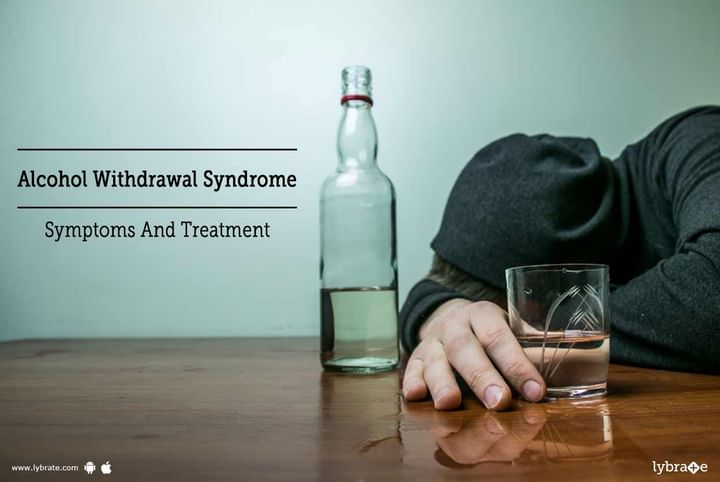Alcohol Withdrawal Syndrome - Symptoms And Treatment
Alcohol Withdrawal Syndrome is the name given to the symptoms seen in you if you consume heavy doses of alcohol frequently and then suddenly quit or reduce your alcohol intake considerably. These symptoms may surface anytime between six hours to a few days after you last drank.
Common symptoms of alcohol withdrawal syndrome:
- Hallucinations
- Fever
- Nausea
- Tremors
- Anxiety
- Vomiting
- Immense sweating
- Insomnia
- High blood pressure
- Sweating
All these symptoms may worsen over a few days and may even last till a few weeks.
What is the root cause?
Alcohol arouses your nervous system. In case you are a heavy drinker, your body gradually gets dependent on alcohol, and cannot adapt too easily to the lack of alcohol after you have abruptly quit. This is the root cause of Alcohol Withdrawal Syndrome (AWS).
Who is at risk?
You are at the maximum risk of AWS if you are an alcohol addict, or you cannot gradually cut down on its intake.
How do doctors diagnose AWS?
Usually, doctors will search for a few symptoms in you, like irregular heart rate, dehydration, fever, and tremors or minor fits. A toxicology screen also helps your doctor finding out the levels of alcohol in your body.
How is AWS treated?
Treatment depends on the severity of the symptoms. Usually are:
1. Home Care - Mild symptoms of AWS can be treated at your home. You need to go for your regular routine checkups and tests. You may also have to go to rehabilitation programs for recovering alcoholics.
2. Hospitalization - If your symptoms are more severe, you may have to be treated in a hospital, where you will be monitored and kept on a fluid diet to help prevent dehydration.
3. Medications - You can also be treated with sedatives.
Do you recover fully?
Usually, chances are that you will fully recover from AWS. If you quit drinking, take your medicines on time, and lead a healthy life thereafter. However, sleep disturbances and fatigue may persist. But, if you have severe symptoms of AWS, you should seek medical care as soon as possible to prevent any further fatal complications. If you wish to discuss about any specific problem, you can consult a Psychiatrist.



+1.svg)
